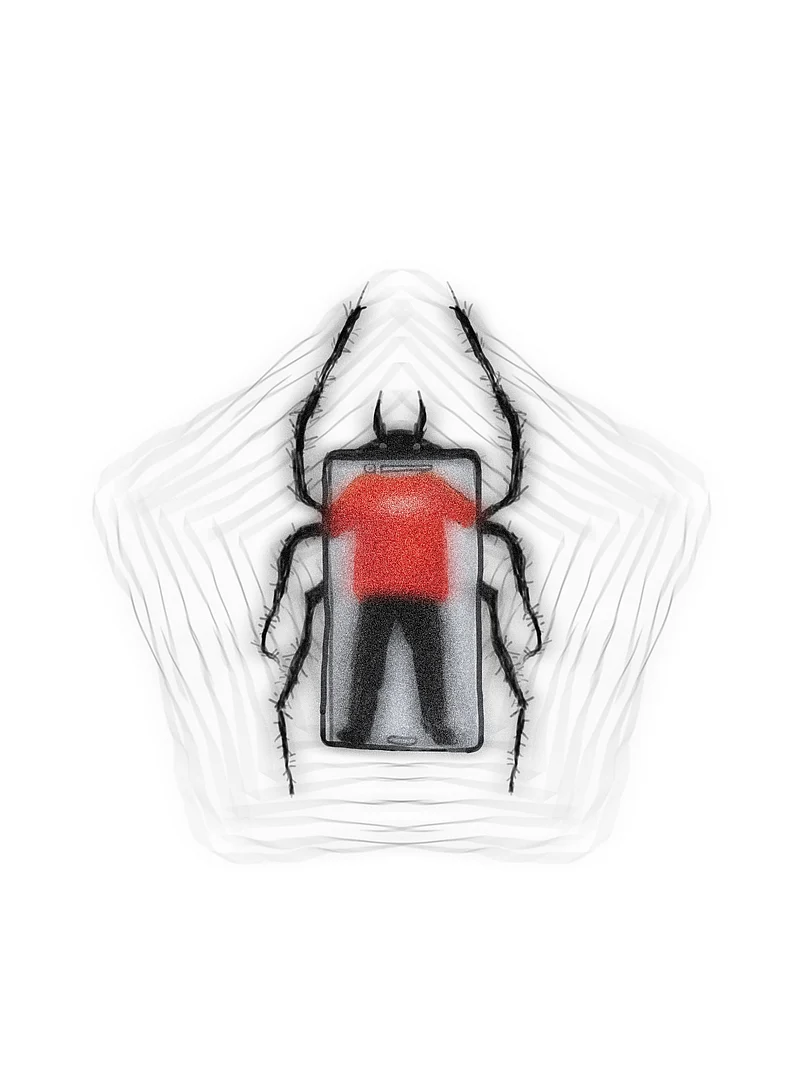I spend a lot of time on social media; my phone claims I spend five hours of my day on Instagram alone. A big part of my day revolves around the non-stop consumption of media. Over the last couple of years, I've witnessed a shift in ideology, especially in men. I believe social media is nothing more than a projection of the self, a shadow much larger than the actual figure. The people there are nothing but figments of themselves. Regardless, there is no denying that social media affects the way we think, and consciously or subconsciously affects our perception of reality.
Incel culture comes to the forefront when I think of this topic. I haven't held myself back from consuming the media that gets churned out through this movement. One of the biggest teachings of incel culture is to tell men to “better yourself”, stemming from the idea of being unworthy and trying to be a better person and eventually rejecting your incel self. But like in all other issues, this is exploited; more than progressive social politics, it becomes hate politics against society.
I've seen this movement leading almost always to self-hatred and hatred for women; hate for people who they don't recognise as one of them, or are not similar to them. Insecurity is being exploited in order to be monetised, which results in sheer hatred. This creates people like the Tate brothers, online influencers and so-called men's rights advocates, tapping into scattered emotions and organising them (only to make money/fame for themselves), always resulting in hatred for others, like a fascist regime organising the masses on the foundation of baseless hate.
But what I find more interesting is why people like the Tate brothers and their ideology are gripping society so strongly. It's firstly because they say things that make sense, in an outrageous way, and say outrageous things in ways that don't make sense. They speak of economic disparity in an “anti-establishment” prerogative, and unadulterated misogyny as a “be a stronger person” narrative. It's a foolproof plan for getting billions of views, while the viewers cherry-pick parts of it, to either support it, or get angry at it.
I noticed a couple of years ago when the Tate brothers were so big they’d even crawled their way into my parents' social media, that the algorithm facilitated the feelings of angst. When I got a piece of media from them, the things they were saying made sense-- about the economy, politics and society; while on the other hand, when my mom saw a reel by them, it was derogatory, offensive and deprecatory of other people. It was almost a purposeful divide, created to form two sides, while the so-called influencers make their profits. Neither me nor my parents fell into their trap, but it's not hard to see why many people would.
They say people my age are susceptible to incel culture, but I have found myself and my friends escaping it completely. Why? Because we are real people, with real interests, real familial and real societal bonds and not reliant on our ghosts in the media.
I am not a victim of incel culture (and social media trends in general), because I asked myself the questions: Are people on social media real? Do people that spread hate on social media
stand up in public places and say the things they do in real life? When they are alone? I don't think so, only because they need the defense of the screen, the anonymity, where they are untouchable. These people only dare to do the things they speak of as long as they are hiding behind a screen. At one point, me and my friends faced something not too dissimilar to attention on social media, positive and negative both. It's unfair to attribute this event only to incel culture because it was in complete anonymity. But it was of course facilitated through social media. My college had an unofficial account on Instagram where you anonymously drop your thoughts and statements, which get posted on their stories for people to view. They called it the 'Confessions Page'.
It was harmless, in fact, at times it was flattering. Later on in its life, however, it became increasingly hostile, my female friends had many statements posted about them there, mostly negative or lustful ones. It came to an obsessive point where my conversations with my friends were listened to and reported on the page. But none of us ever gave it much weight, mainly because we never faced it in real life, it was only on the screen that people resorted to this. Incidents like these made me realise that people on social media aren't real, they are not flesh-and-blood figures, and they make, for the most part, hollow statements.
However, the second a group of these people get mobilised, they feel invincible. That's what incel culture has done to thousands of people. It's made them bold at being shamelessly negative. And the waves they make cause immense harm to society, Something I even noticed that I was becoming desensitised to issues because of social media. For instance, the normalisation of hate and violence after they get grouped in with “dark humour”. It's good to find humour in things. But the desensitisation to violence, atrocities and hate in the real world isn't something that should be normalised, and unfortunately, social media does just that. The fear spread among women; the divisiveness it creates; and most importantly, the hatred which gets normalised even beyond their own bubble of incel culture.
This is the real issue: the fear mongering, the normalisation of hatred, which destroys the social fabric. While people on social media are just projections and holograms, the effects they've had on our lives in the recent past are irrefutable.














